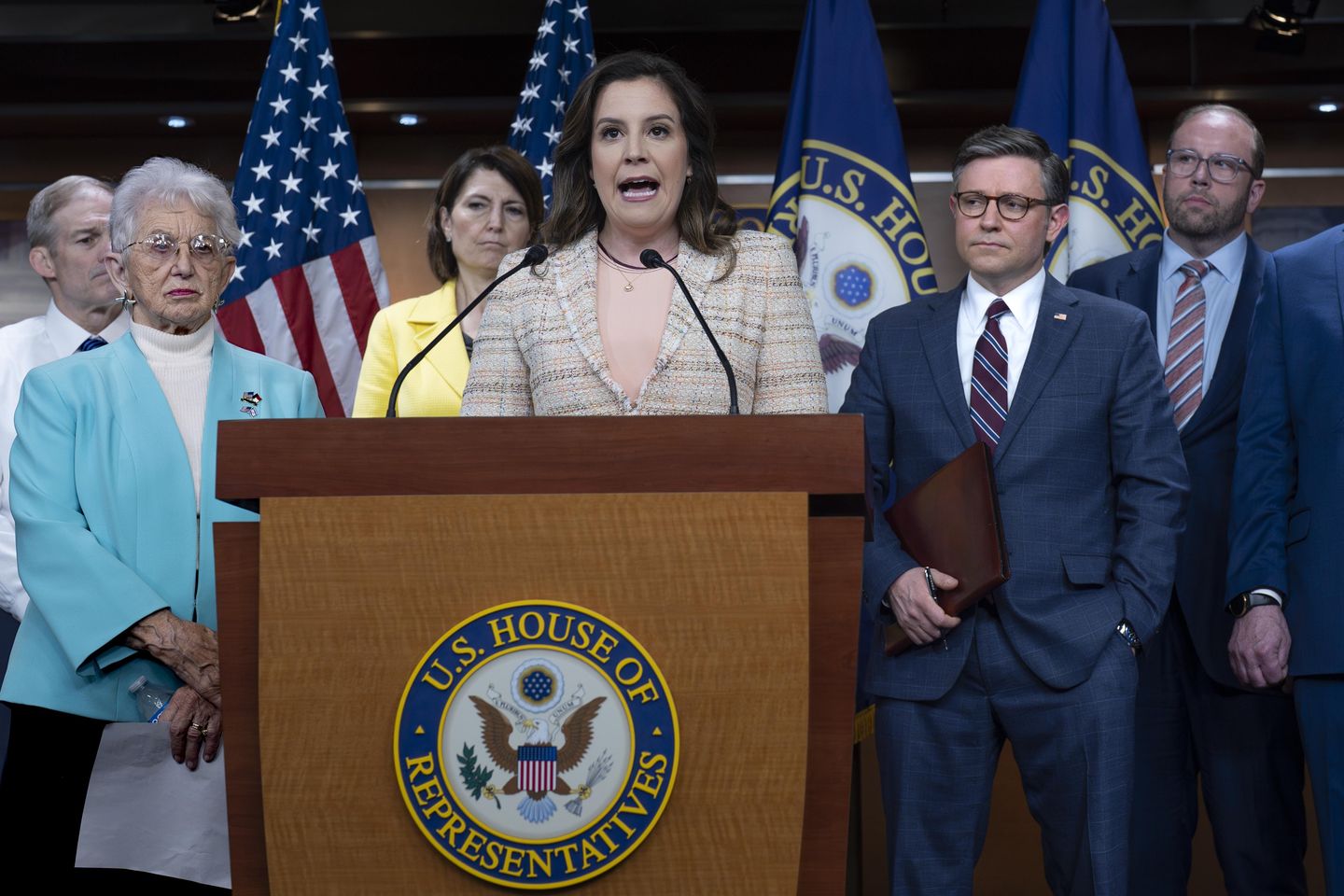Rep. Elise Stefanik of New York and other congressional Republicans are up in arms over recent reports that the Pentagon’s school system is allegedly pushing a curriculum that promotes what they deem as “divisive gender, racial, and cultural ideology.” The controversy surrounding the Department of Defense Education Activity (DoDEA) has sparked a heated debate about the role of education in shaping the minds of young Americans, especially those in military families.
The issue came to light when a leaked document revealed that DoDEA was considering a new curriculum that would incorporate teachings on critical race theory, gender identity, and other controversial topics. Critics argue that such teachings are divisive and promote a victim mentality among students, rather than fostering a sense of unity and patriotism.
Rep. Stefanik, who serves on the House Armed Services Committee, wasted no time in condemning the proposed curriculum, calling it “un-American” and a threat to national security. She accused the Pentagon of trying to indoctrinate the children of service members with leftist ideology, rather than focusing on preparing them for the challenges of military life.
Other Republicans echoed Stefanik’s concerns, with Rep. Jim Banks of Indiana calling for a full investigation into the matter. Banks argued that the Pentagon should be focusing on educating students about the sacrifices and values of the military, rather than pushing a political agenda.
The controversy has put DoDEA on the defensive, with officials denying that the proposed curriculum is intended to indoctrinate students. In a statement, DoDEA spokesperson Peter C. Fowler said that the curriculum is still in the development stage and that no final decisions have been made. He emphasized that the goal of the curriculum is to provide a well-rounded education that prepares students for success in a diverse and changing world.
Despite the reassurances from DoDEA, the controversy has reignited a larger debate about the role of education in shaping young minds. Critics of critical race theory argue that it promotes a divisive and negative view of American history, focusing on the country’s flaws rather than its strengths. They believe that such teachings sow seeds of division and resentment among students, rather than promoting unity and understanding.
Proponents of critical race theory, on the other hand, argue that it is important to acknowledge the systemic racism and inequality that exist in society. They believe that education should not shy away from uncomfortable truths, but rather confront them head-on in order to create a more just and equitable society.
The debate over critical race theory is just one aspect of the larger controversy surrounding the Pentagon’s school system. Some critics argue that the curriculum is too focused on social justice issues, rather than on preparing students for the rigors of military life. They believe that military families face unique challenges that require a different approach to education, one that emphasizes discipline, resilience, and patriotism.
Supporters of the Pentagon’s school system, however, argue that it is important to provide a well-rounded education that prepares students for success in all areas of life. They believe that teaching students about diversity and inclusion is essential in today’s multicultural society, and that the military should reflect the values of equality and respect for all individuals.
The controversy over the Pentagon’s school system is likely to continue as lawmakers and officials debate the best approach to education for military families. As the debate rages on, one thing is clear: the role of education in shaping young minds is a complex and contentious issue that will continue to spark debate and controversy for years to come.









